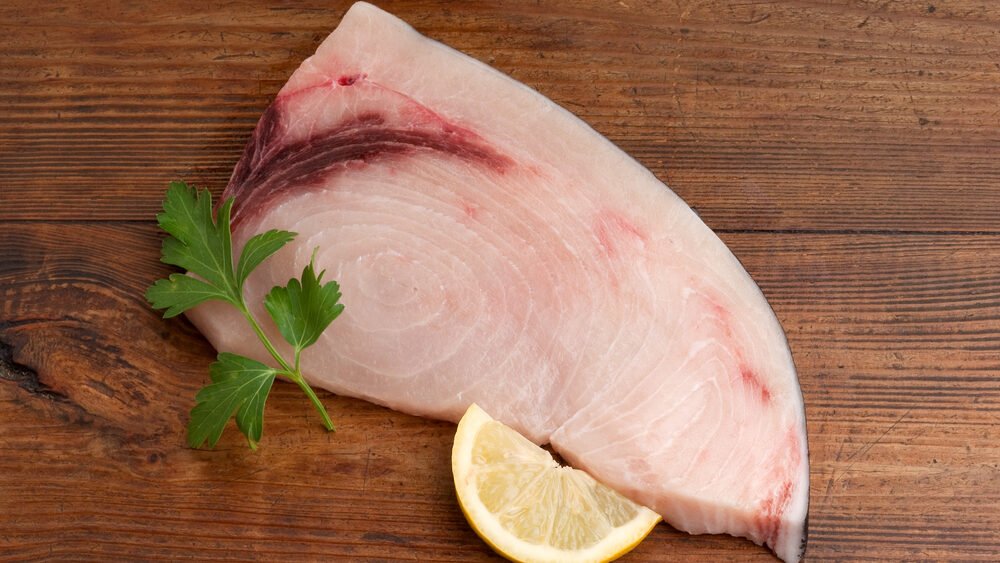Can Pregnant Women Eat Fish? Safe Fish + Mercury Seafoods to Avoid
If you’re pregnant and want to eat fish, you better be careful of how much you eat and the type of fish you eat. But with the right food source, you may still be able to satisfy your fish cravings while getting all the benefits from omega-3 fatty acids, which are essential for good health for you and your baby. Let’s unravel this tricky topic and get to the bottom of it.
Note: You should consult your doctor before eating fish or taking supplements during pregnancy or breastfeeding. This article is not medical advice.
What fish can women eat during pregnancy?

According to the FDA (Food and Drug Administration) and EPA (Environmental Protection Agency), some fish options and types of seafood are considered safer during pregnancy than others since fish contain high omega-3 contents and relatively low levels of mercury:
- Salmon
- Tilapia
- Cod
- Sardines
- Anchovies
Types of fish and seafood to avoid during pregnancy: High mercury levels
Like other foods, too much of a good thing can be harmful, so remember, “everything in moderation.” But it would be best to avoid a few fish because their mercury levels are too high. Here are a few examples of high-mercury fish:
- Swordfish
- Shark
- Tilefish
- King mackerel
This list is incomplete, and these are only a few common examples. Pregnant women should avoid highly contaminated fish because mercury poisoning can cause fetal developmental defects or birth issues in newborns and children under 18, such as brain development problems.
The benefits of fish oil and omega-3 supplements when pregnant

Pregnant women can benefit from omega-3 supplements such as fish oil, as they provide a concentrated dose of healthy fatty acids without exposing themselves to the adverse health risks of mercury from fish.
How much omega-3 to eat when pregnant
Supplements also need to be dosed correctly. Always discuss with your doctor before starting a new supplement, especially when pregnant or breastfeeding. A journal article in Obstetrics & Gynecology states that the dietary goal for omega-3 fatty acids during pregnancy is 650 mg, of which 300 is DHA.
Another publication from NHS England states that according to research, pregnant women with one baby should take omega-3 supplements from 12 weeks onwards, at least 500 mg of DHA daily. Still, avoid taking more than 1000 mg of DHA; taking more won’t benefit the baby. To get the amount from eating salmon, you would need 2 large servings of 150 g per week or 3 smaller servings of 100 g.
Many believe a safe dose is around 1000 mg of fish oil daily or a combination of 1000 mg of EPA and DHA daily.
The label on the fish oil supplement will tell how much oil, omega-3, EPA, and DHA are in one serving and how many capsules are in a serving size. Again, before you start a new supplement, discuss it with your healthcare provider.
Frequently Asked Questions about Pregnant Women Eating Fish
What about specific types of fish? Let’s look at these commonly asked questions about eating fish when pregnant. Please know that these answers are from the guidelines of the FDA and the EPA, and you can read more on their websites for additional information.
Can you eat trout while pregnant?
According to the FDA, pregnant women should not eat more than 2-3 trout servings per week; one serving is 4 ounces (maximum 8 to 12 ounces in a week).
Can you eat fish sticks while pregnant?
Generally, people consider fish sticks as safe to eat during pregnancy in moderation, depending on which fish they consist of. But check with your doctor before you eat any fish sticks or fish eggs.
Can you eat smoked trout when pregnant?
It’s best to avoid smoked trout when pregnant.
Can you take fish oil while pregnant?

Fish oil supplements can benefit pregnant women as a healthy source of omega-3 fatty acids without the same risk of mercury poisoning. Still, discussing the dosage with your healthcare provider would be best.
Is tuna such as yellowfin safe during pregnancy?
The FDA has listed canned light tuna and skipjack tuna as low-mercury food, and you may eat 2-3 servings per week, where one serving is 4 ounces if that is all the fish you eat.
Yellowfin tuna, albacore, or white tuna have medium levels of mercury, which you can eat in one serving of 4 ounces per week.
The FDA lists bigeye tuna as a “bad choice” because it contains high levels of mercury, and pregnant women and children should avoid it. As you can see, you should be mindful of which tuna species you eat.
Can you eat sushi while pregnant?

It’s best to avoid eating raw fish during pregnancy because of potentially harmful bacteria. It’s best to be extra careful with seafood during pregnancy.
Again, let’s reiterate that you should consult your doctor before you eat any fish or take any supplements.

